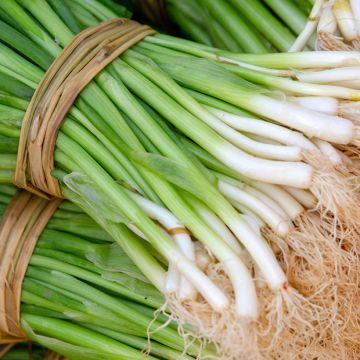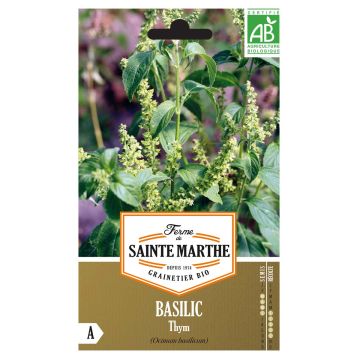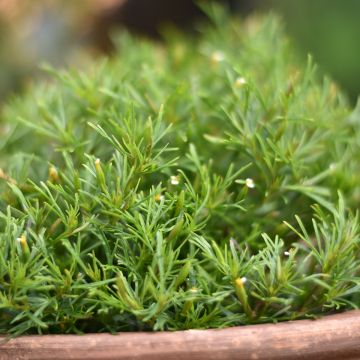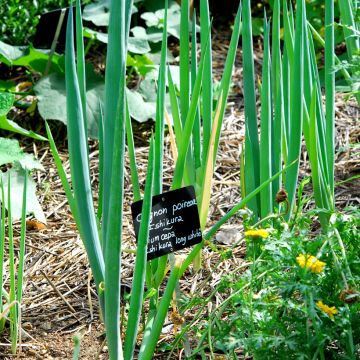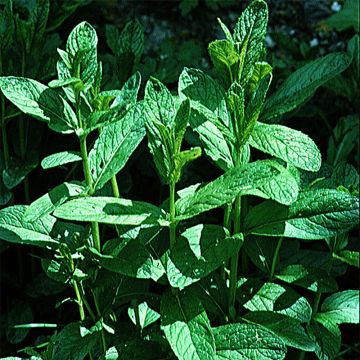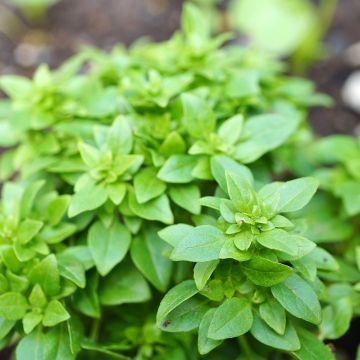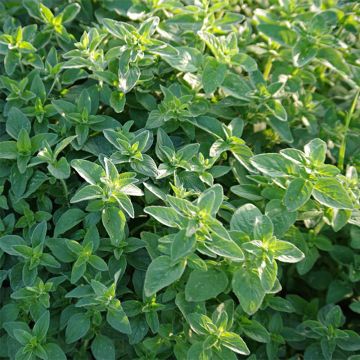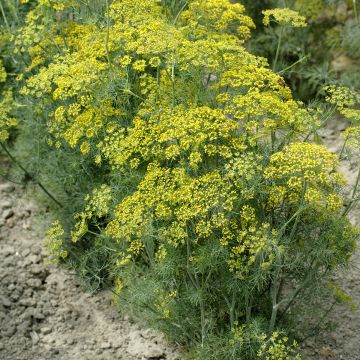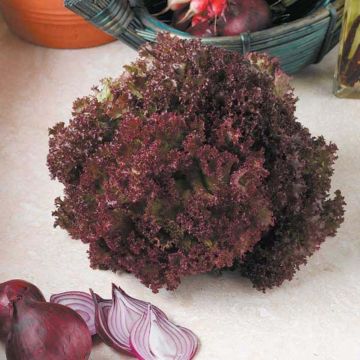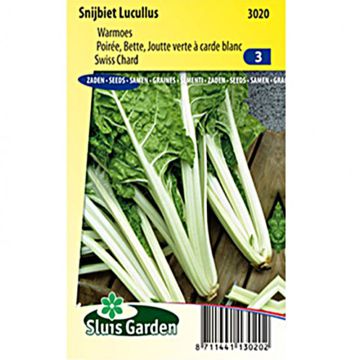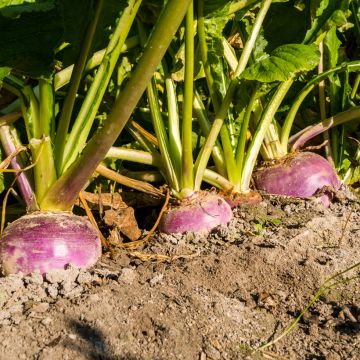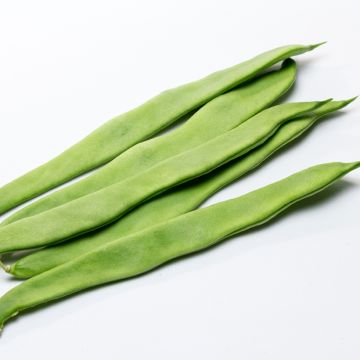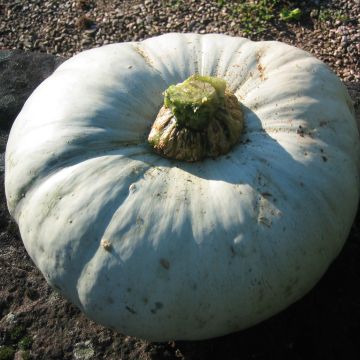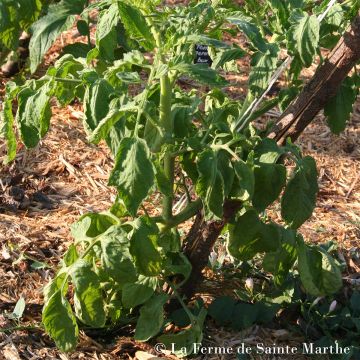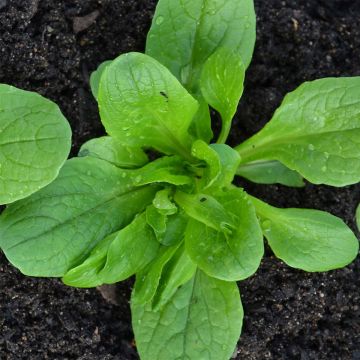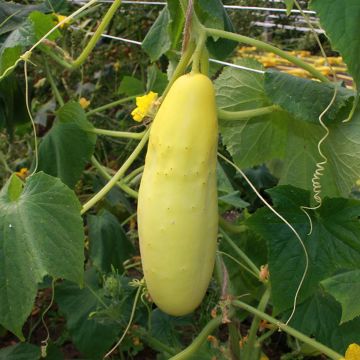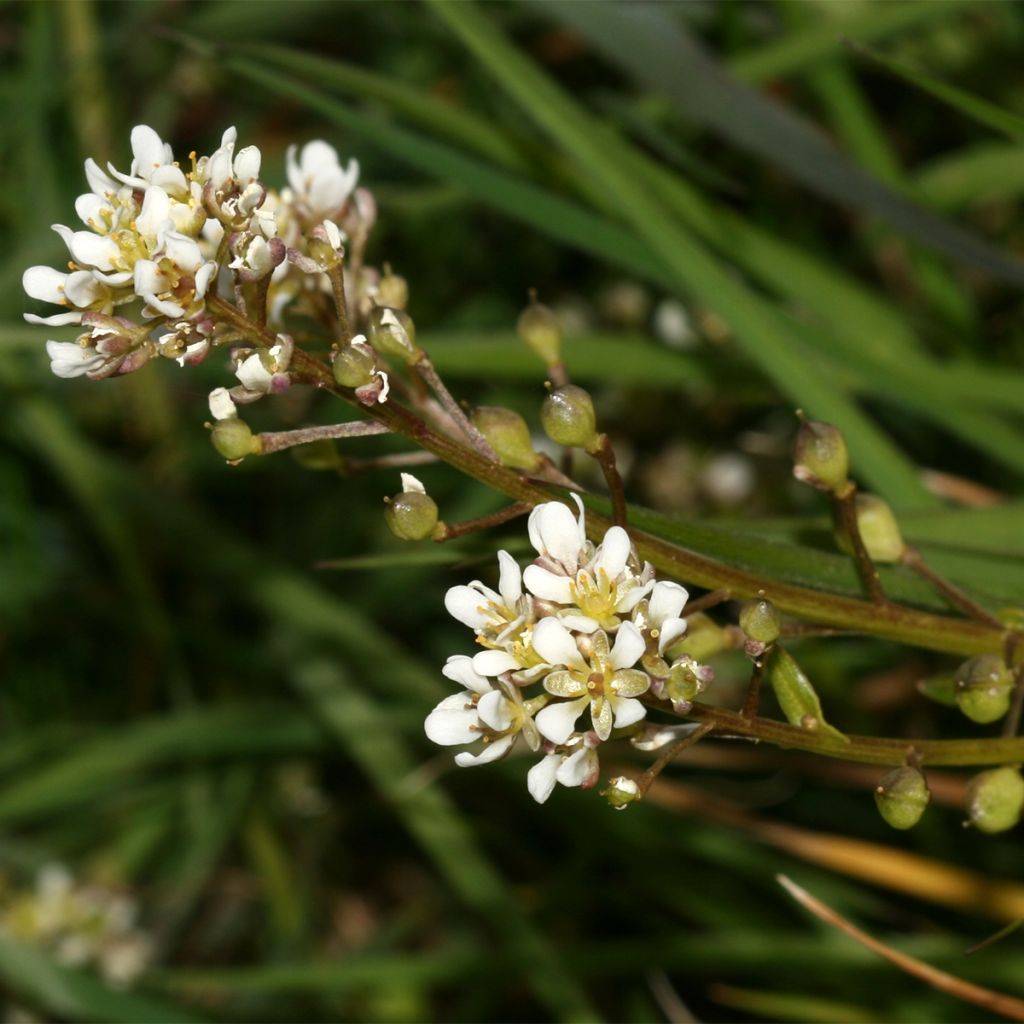

Cochléaire officinale Bio - Ferme de Sainte Marthe


Cochléaire officinale Bio - Ferme de Sainte Marthe
Cochlearia officinalis
Cochlearia officinalis
Common scurvygrass, Spoonwort
Special offer!
Receive a €20 voucher for any order over €90 (excluding delivery costs, credit notes, and plastic-free options)!
1- Add your favorite plants to your cart.
2- Once you have reached €90, confirm your order (you can even choose the delivery date!).
3- As soon as your order is shipped, you will receive an email containing your voucher code, valid for 3 months (90 days).
Your voucher is unique and can only be used once, for any order with a minimum value of €20, excluding delivery costs.
Can be combined with other current offers, non-divisible and non-refundable.
Home or relay delivery (depending on size and destination)
Schedule delivery date,
and select date in basket
This plant carries a 6 months recovery warranty
More information
We guarantee the quality of our plants for a full growing cycle, and will replace at our expense any plant that fails to recover under normal climatic and planting conditions.
Description
Cochlearia officinalis is a medicinal and aromatic plant known as scurvygrass, spoonwort, officinal watercress, or officinal horseradish. It is cultivated for its foliage, which has a spicy, pungent, and slightly bitter flavour. It is used as a condiment similar to chives or even as a mustard substitute. Its leaves are rich in vitamin C. Sow the seeds directly in place, between April and September, in rich and well-drained garden soil. Sow in full sun or partial shade. The leaves can be harvested as needed throughout winter.
Cochlearia officinalis belongs to the Brassicaceae family, just like mustard or watercress. This small plant is resistant to frost, behaving as a perennial or biennial depending on the climate and growing conditions. It has a rapid growth rate. This species is found not only near the ocean but also increasingly along roads subjected to winter salting, as it thrives in salty soils. The plant forms a clump measuring about 25cm (10in) in all directions. It develops upright and leafy stems. The leaves at the base have long petioles, while the smaller leaves on the stems are sheathing. All leaves are tough, dark green, with slightly upturned edges (hence the name spoonwort). This foliage is rich in vitamin C. Flowering occurs from March to July, depending on the sowing date. It takes the form of slightly fragrant white flowers measuring about 1cm in diameter, clustered together. After pollination by insects, fruits called siliculas form, containing small kidney-shaped seeds.
Culinary use: the leaves have a pungent and spicy flavour reminiscent of horseradish. They are used raw, in small quantities, to enhance salads or raw vegetables, for example with garlic and parsley. Spoonwort also adds flavour to omelettes.
Properties: antiscorbutic, detoxifying, sudorific, diuretic, cholagogic, rubefacient, digestive, and tonic. Prepare the leaves as an infusion.
Harvest: the leaves are harvested from November to March during mild weather.
Storage: consume quickly or chop the leaves and freeze them. Treat them as you would parsley and chives.
Gardener's tip: keep the soil slightly moist, but not waterlogged. Beware of slug and snail attacks in spring and autumn.
Report an error about the product description
Cochlearia officinalis in pictures
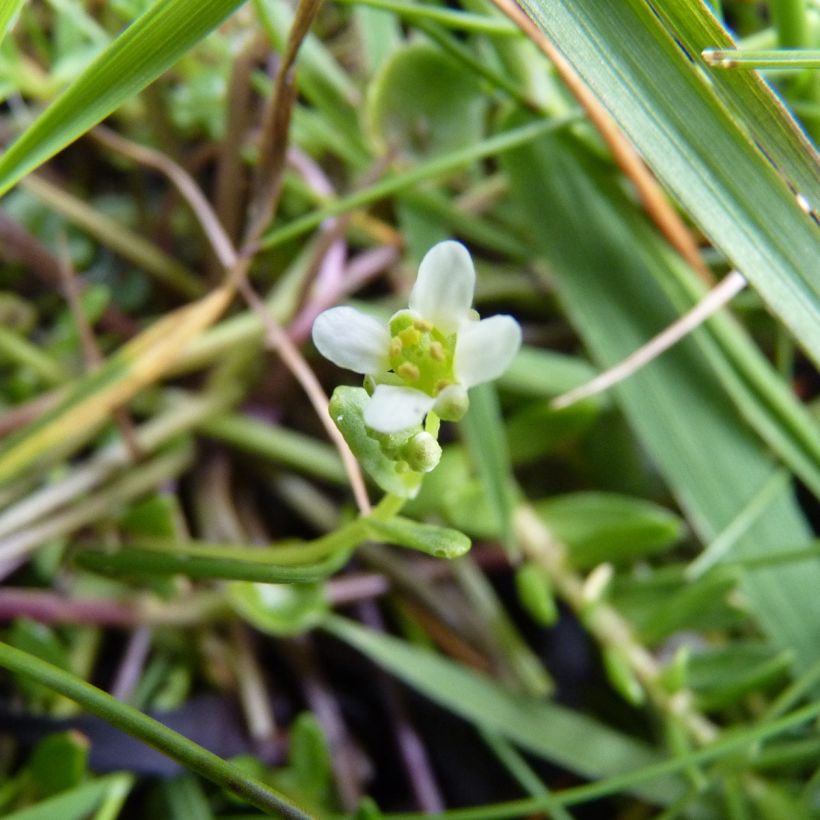

Harvest
Plant habit
Foliage
Botanical data
Cochlearia
officinalis
Brassicaceae
Common scurvygrass, Spoonwort
Cultivar or hybrid
Annual
Other Herb seeds
View all →Planting and care
Sowing
Sow by broadcasting or in rows 25cm (10in) apart. Dig a furrow 1cm deep, place the seeds at the bottom of the furrow, then cover with fine soil or compost. Firm with the back of a rake, and then water.
Thin out the young plants when they reach 10cm (4in) and keep one every 25cm (10in).
Plant in a sunny or semi-shaded position, in light, well-drained soil that remains slightly moist.
Maintenance
Regularly hoe and weed. Water moderately. Beware of slug and snail attacks in early spring and early autumn.
Seedlings
Care
Intended location
This item has not been reviewed yet - be the first to leave a review about it.
Similar products
Haven't found what you were looking for?
Hardiness is the lowest winter temperature a plant can endure without suffering serious damage or even dying. However, hardiness is affected by location (a sheltered area, such as a patio), protection (winter cover) and soil type (hardiness is improved by well-drained soil).

Photo Sharing Terms & Conditions
In order to encourage gardeners to interact and share their experiences, Promesse de fleurs offers various media enabling content to be uploaded onto its Site - in particular via the ‘Photo sharing’ module.
The User agrees to refrain from:
- Posting any content that is illegal, prejudicial, insulting, racist, inciteful to hatred, revisionist, contrary to public decency, that infringes on privacy or on the privacy rights of third parties, in particular the publicity rights of persons and goods, intellectual property rights, or the right to privacy.
- Submitting content on behalf of a third party;
- Impersonate the identity of a third party and/or publish any personal information about a third party;
In general, the User undertakes to refrain from any unethical behaviour.
All Content (in particular text, comments, files, images, photos, videos, creative works, etc.), which may be subject to property or intellectual property rights, image or other private rights, shall remain the property of the User, subject to the limited rights granted by the terms of the licence granted by Promesse de fleurs as stated below. Users are at liberty to publish or not to publish such Content on the Site, notably via the ‘Photo Sharing’ facility, and accept that this Content shall be made public and freely accessible, notably on the Internet.
Users further acknowledge, undertake to have ,and guarantee that they hold all necessary rights and permissions to publish such material on the Site, in particular with regard to the legislation in force pertaining to any privacy, property, intellectual property, image, or contractual rights, or rights of any other nature. By publishing such Content on the Site, Users acknowledge accepting full liability as publishers of the Content within the meaning of the law, and grant Promesse de fleurs, free of charge, an inclusive, worldwide licence for the said Content for the entire duration of its publication, including all reproduction, representation, up/downloading, displaying, performing, transmission, and storage rights.
Users also grant permission for their name to be linked to the Content and accept that this link may not always be made available.
By engaging in posting material, Users consent to their Content becoming automatically accessible on the Internet, in particular on other sites and/or blogs and/or web pages of the Promesse de fleurs site, including in particular social pages and the Promesse de fleurs catalogue.
Users may secure the removal of entrusted content free of charge by issuing a simple request via our contact form.
The flowering period indicated on our website applies to countries and regions located in USDA zone 8 (France, the United Kingdom, Ireland, the Netherlands, etc.)
It will vary according to where you live:
- In zones 9 to 10 (Italy, Spain, Greece, etc.), flowering will occur about 2 to 4 weeks earlier.
- In zones 6 to 7 (Germany, Poland, Slovenia, and lower mountainous regions), flowering will be delayed by 2 to 3 weeks.
- In zone 5 (Central Europe, Scandinavia), blooming will be delayed by 3 to 5 weeks.
In temperate climates, pruning of spring-flowering shrubs (forsythia, spireas, etc.) should be done just after flowering.
Pruning of summer-flowering shrubs (Indian Lilac, Perovskia, etc.) can be done in winter or spring.
In cold regions as well as with frost-sensitive plants, avoid pruning too early when severe frosts may still occur.
The planting period indicated on our website applies to countries and regions located in USDA zone 8 (France, United Kingdom, Ireland, Netherlands).
It will vary according to where you live:
- In Mediterranean zones (Marseille, Madrid, Milan, etc.), autumn and winter are the best planting periods.
- In continental zones (Strasbourg, Munich, Vienna, etc.), delay planting by 2 to 3 weeks in spring and bring it forward by 2 to 4 weeks in autumn.
- In mountainous regions (the Alps, Pyrenees, Carpathians, etc.), it is best to plant in late spring (May-June) or late summer (August-September).
The harvesting period indicated on our website applies to countries and regions in USDA zone 8 (France, England, Ireland, the Netherlands).
In colder areas (Scandinavia, Poland, Austria...) fruit and vegetable harvests are likely to be delayed by 3-4 weeks.
In warmer areas (Italy, Spain, Greece, etc.), harvesting will probably take place earlier, depending on weather conditions.
The sowing periods indicated on our website apply to countries and regions within USDA Zone 8 (France, UK, Ireland, Netherlands).
In colder areas (Scandinavia, Poland, Austria...), delay any outdoor sowing by 3-4 weeks, or sow under glass.
In warmer climes (Italy, Spain, Greece, etc.), bring outdoor sowing forward by a few weeks.






























